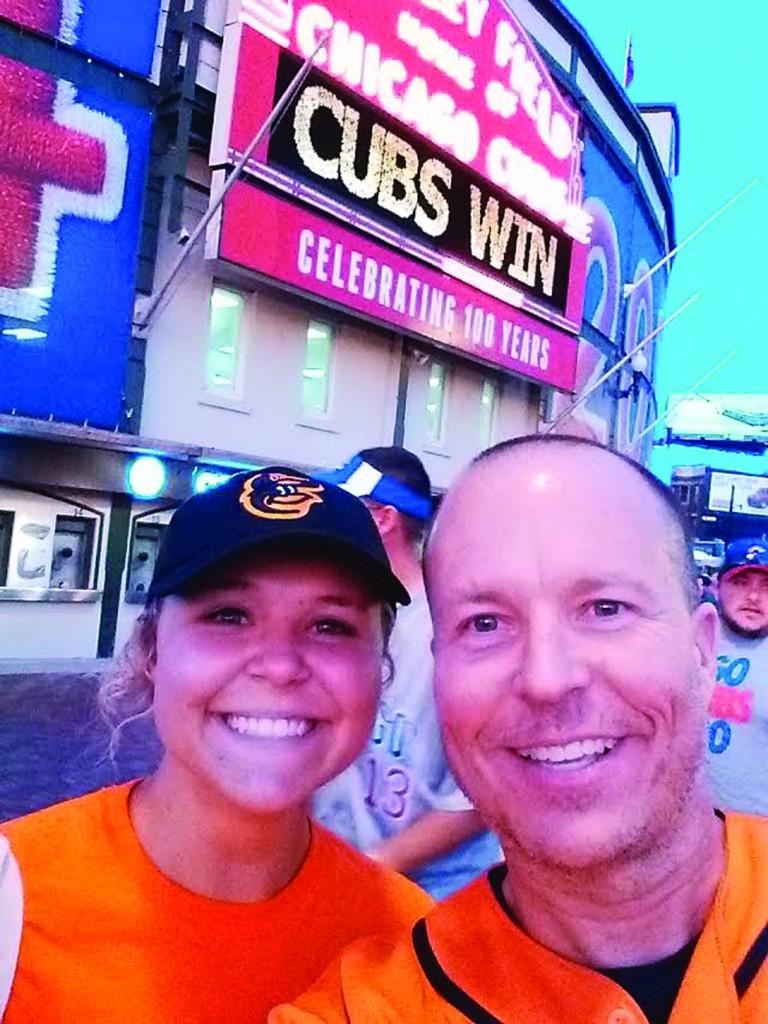To clear the air, I will start as plainly as possible: I am an avid Baltimore Orioles fan. I pledge my allegiances to the Orioles franchise, and I will faithfully root for my home team until the day I die. But my love for baseball runs deeper than my devotion to the Orioles. I dream of visiting every Major League ballpark and have already checked eight of them off my list. Although my team did not make it far in October baseball, I have still enjoyed the excitement of following the MLB playoffs. The 2016 World Series has staged one of the most extraordinary matchups in all of baseball. With historic undertones ringing from both Chicago and Cleveland, you don’t have to be a fan of either team to appreciate just how big a World Series victory would be for either Cleveland or Chicago.
The last time the Chicago Cubs won a World Series title was back in 1908—before television or stadium lights, before African Americans were permitted to play in the Major League. The Cubs appeared in seven different World Series since their last win in 1908, but their most recent appearance still dates back to 1945. Wrigley Field, home of the Chicago Cubs, was built in 1914, making it the second oldest stadium in Major League Baseball (behind Boston’s Fenway Park, which was built in 1912). Although Wrigley is one of baseball’s most historic stadiums, it has never seen its team take home a World Series. Until 2015, Wrigley didn’t even have a jumbotron screen, and a flag with either a “W” or “L” was flown above the scoreboard to indicate the game’s outcome.
A trip to Wrigley Field is like taking a trip back in time to the glory days of baseball. In August 2014, I visited Chicago, Ill. and attended two games at Wrigley Field. The Orioles were having one of their most successful seasons in my lifetime, and my dad and I hit the road to watch our team play an away series. Although the Cubs have been stuck in a rut, they managed to sweep the series against Baltimore. As a tradition at Wrigley, the song “Go Cubs Go” was played after each Cubs win. Although I was bitter that Baltimore had lost the series, I found myself singing the catchy tune for weeks after visiting Chicago.
The last time the Cleveland Indians won the World Series was back in 1948. This victory marked the first time a Major League team with African American men on the roster had won a major championship. Hall of Famers Larry Doby and Satchel Paige both played for the Indians at the time, and Paige became the first African-American player to pitch during the World Series. However, Cleveland’s 2016 World Series appearance is a lot bigger than baseball. Until the Cleveland Cavaliers defeated Golden State in the 2016 NBA Finals, the city of Cleveland hadn’t won a championship since the Browns’ NFL Championship (before there was such thing as a Superbowl). Since the Cavaliers won the NBA Finals in June 2016, Lebron James has been rallying Cleveland fans in support of the Indians in an effort to bring another major championship to the city of Cleveland.
Over Memorial Day weekend of 2016, I traveled to Cleveland with my mom, step-dad and younger brother to see another Orioles series on the road. At the time, there was no implication that we were visiting the stadium of a potential World Series team. The Indians seemed fairly average, and the Orioles were able to win the series 2-1. Progressive Field, home of the Cleveland Indians, opened in 1994. The Indians’ stadium has a vintage feel while still keeping up with current trends. While ballparks like Wrigley stick to classic baseball grub, Progressive Field offers more specialized cuisine like build-your-own tacos, ice cream sundaes and an entire buffet available to fans who buy club level tickets.
The 2016 World Series has been refreshing for a number of reasons. It’s a relief to see two respectable teams competing for the title (I don’t know about you, but I was getting really tired of rooting against Boston). A victory for either city will certainly be something worth celebrating, but a tiny piece of my heart will keep on singing, “Go Cubs Go, Go Cubs Go.”
Sources: baseball-reference.com, eater.com, Forbes, USA TODAY

